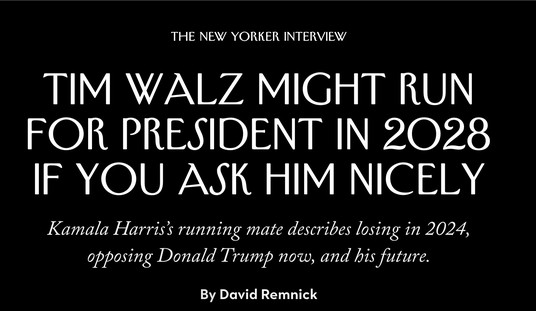Former New York governor Mario Cuomo passed away yesterday at the age of 82, just hours after his son Andrew gave an inaugural speech for a second term of the office his father held for three terms. Cuomo had recently been hospitalized for cardiac issues, and his death was attributed to heart failure. Andrew Cuomo had just paid homage to his father in the speech, CBS News notes:
At his second inaugural address at One World Trade Center on Thursday, Gov. Andrew Cuomo invoked his father.
“He couldn’t be here physically today, my father, but my father is in this room,” Gov. Cuomo said. “He is in the heart and mind of every person who’s here, and here, and here, and his inspiration and his legacy and his experience is what brought this state to this point.”
Cuomo drew laughs when he showed his speech to his father, who said, “Not bad for a second-termer.”
The elder Cuomo first rose to national prominence in 1984, when his convention speech ripped Ronald Reagan for his “city on a hill” allusion and scolded him for ignoring the parts of the “city” where despair reigned rather than hope. This launched Cuomo’s status as the pre-eminent progressive in national politics, and began the “Will he run?” speculation that defined the Democratic presidential nomination process for the next two cycles:
Did the harsh environment of campaigning really discourage Cuomo? I’m a little skeptical about that. Cuomo could have practically walked to the nomination in 1988. People forget how poor the Democratic field was in that cycle, nor how vulnerable the Republican Party was after Iran-Contra and eight years of GOP control of the White House. A Cuomo candidacy would have swamped out the “Seven Dwarves” and Michael Dukakis would not have come close to beating Cuomo to the top of the ticket.
The bigger question was whether Cuomo and his brand of progressive politics would have succeeded in a general election. CBS played the clip from Cuomo’s 1984 speech, but that misses the context and the aftermath. The context was a double-dip recession that had created a high unemployment rate early in Reagan’s first term, but the economy had turned the corner months earlier. The roaring economy would create the greatest post-war expansion in American history and set the stage for a quarter-century of low unemployment and solid growth. Walter Mondale offered a slightly more moderate version of Cuomo’s progressivism … and lost 49 states in the election a few months after that convention speech, even before the economic turnaround had occurred.
Mondale’s experience had to have served as a cautionary tale to Cuomo. The results of the 1984 election exposed just how marginal his and Mondale’s politics actually were with the American people. His reticence turned out to be correct; Massachusetts governor Michael Dukakis lost 40 states to George H. W. Bush. Bush successfully painted Dukakis as an out-of-touch Northeastern liberal — a charge that would have stuck even more to Cuomo. Even with Bush weakened in 1992, Cuomo sat out that cycle, and the Democrats chose Bill Clinton instead. He lost his final bid at re-election in 1994 even in liberal New York to George Pataki, which ended his status as a potential nominee. It would take the collapse of the Reagan expansion more than a decade after that to elect someone of Cuomo’s political stripe to the Presidency in 2008.
Over the succeeding years, Cuomo has become an eminence grise to Democrats, and a poet laureate of sorts to progressives, Todd Purdum writes at Politico. He had his petty side too, Purdum notes, especially with the media:
He scorned Bill Clinton’s philosophy of political “triangulation” — “the idea that the president should play one foot in the boat and one foot on the dock without winding up with his tush in the water,” as he once described it — yet somehow never managed to set his own sails fully to the wind. Had he accepted the Supreme Court seat that Clinton dangled before him, he invariably would have written scores of erudite opinions explaining why his cool head constrained him from ruling as his big heart wished.
His personality was a paradox, pairing as it did a public largeness of spirit with private pettiness, even cruelty. He once parried the question of an Albany reporter who had a bad stutter with a mocking stutter of his own and threatened another hapless correspondent: “I’ll ruin you! Your publisher doesn’t even know your name!” After his son Andrew won the governorship of the Empire State for the first time, Cuomo declined to say he was “proud,” on the grounds that doing so would suggest he had something to do with his son’s success.
He was, by training and inclination, always the clever lawyer. Politics was for him a perpetual game of cat and mouse. During the 1992 presidential campaign, the one he himself so theatrically declined to enter, he carefully mixed mild support for Clinton with respect for the wild card Ross Perot. When I once asked him, as a reporter for The New York Times, whether the investment banker Felix Rohatyn had helped put him in touch with Perot, he demurred, “No, no.” Told that only hours earlier, Rohatyn had explained that he’d first given Perot the governor’s phone number, Cuomo fixed me with a glare, “Well, then you should have told me that first, right?”
The next day, Cuomo’s press secretary called to say that the governor had instructed her to tell me he would never speak to me again, then added, “Off the record, he probably will.” He did.
For whatever reason, Cuomo never put his oars into the presidential waters. It will be interesting to see if Andrew follows his father’s example.








Join the conversation as a VIP Member